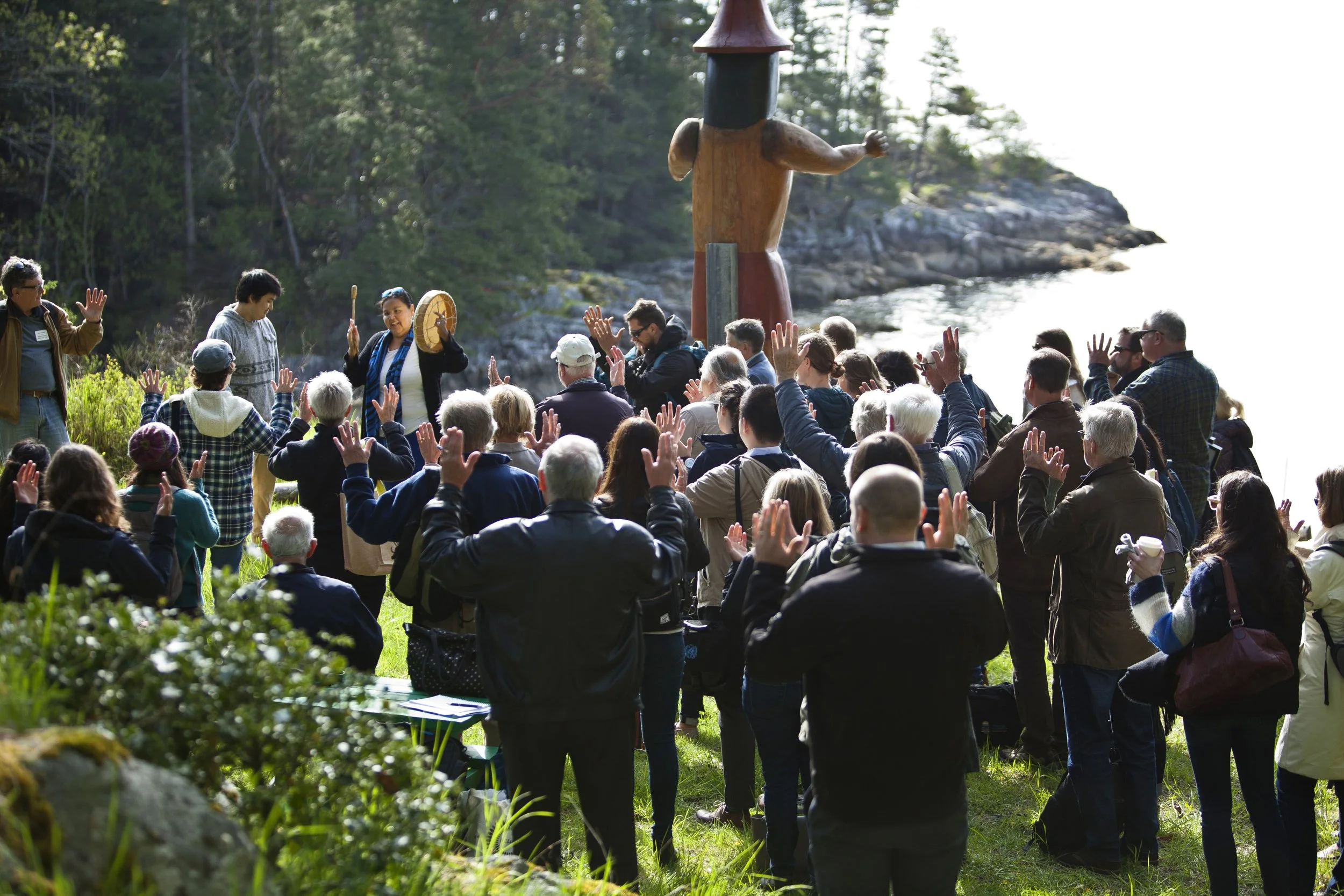Goals and Strategic Priorities for Reconciliation, Equity and Inclusion
Under this goal, Indigenous sovereignty is honoured, where people’s unique identities, experiences, and voices are valued, celebrated, and protected, and where all have the resources and social capital necessary to ensure their wellbeing and prosperity – leaving no one behind.
Click on the + next to the Goals to read the Strategic Priorities
+ 1. Aspire for the AHSUBR region to be a model for reconciliation with Indigenous communities, actualizing the vision and principles of UNDRIP and DRIPA through collaboration and a collective commitment.
1.1 Incorporate First Nations’ languages into external stakeholder and community communications and publications and encourage recognition of Sḵwx̱wú7mesh Úxwumixw place names at community meetings.
1.2. Encourage, implement or facilitate educational products (e.g., interpretive signage, workshops, publications, online resources) that incorporate the worldviews, perspectives, place names and languages of local First Nations.
+ 2. Have a measurable and positive impact on the communities of local First Nations by integrating their values and goals into all areas of our work and through defining and facilitating reconciliation with the land.
2.1 Collaborate with local First Nations to support or create job opportunities for youth and other First Nations individuals.
2.2 Support the Sḵwx̱wú7mesh Úxwumixw in achieving their strategic plan and their X̱ay Temíxw land and marine use plan, including monitoring, protection and enforcement goals through facilitating stakeholder engagement, and research, monitoring and conservation projects.
+ 3. Ensure HSBRIS staffing and Board operations, as well as partnerships with external stakeholders, strive to meet the goals of the UN SDGs regarding reconciliation, equity and inclusion.
3.1 Integrate Indigenous perspectives into HSBRIS operations and communications,including building ethical spaces into meetings, workshops and the AHSBR Roundtable.
+ 4. For all municipalities and authorities to adopt the policies against racism, discrimination, exclusion and intolerance and together, undertake initiatives to eliminate all forms of discrimination with a view to building open and inclusive societies.
4.1 All Howe Sound communities to become members of the Coalition of Inclusive Communities that improves their practices to promote social inclusion, eradicate all forms of racism and discrimination, promote human rights and commit to respecting, protecting and promoting human rights and diversity.
4.2. All Howe Sound communities to consider the UN SDGs and the community Vital Signs reports for recommendations for building more inclusive communities, paying particular attention to the community surveys indicating target areas for improvement.









